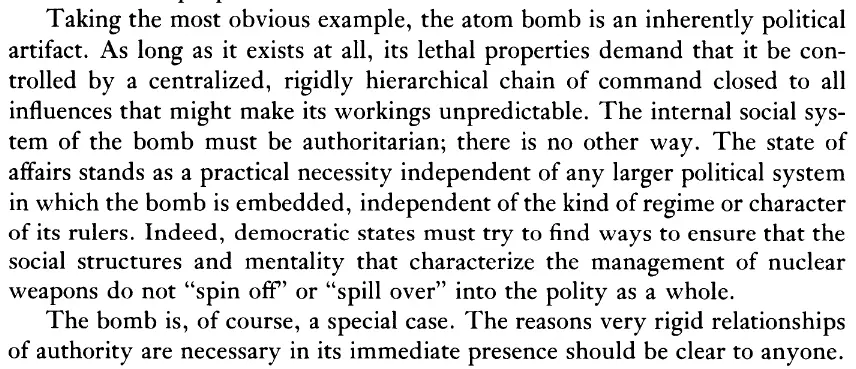I've noticed serious political discussion on the relationship between technology and society has been extremely lacking, and articles like this one are sorely needed. For that reason, it is even more disappointing that it has been done so poorly.
A lot of the reasoning and arguments in the piece are muddled, in part because the reference point for those arguments, like Engels' On Authority, are famously off-mark. Some refutations were magically written before Engels whet his pen, like God and the State in 1871, which clarifies the Engels' intentional muddling of the anarchist position on authority, and incidentally, correctly identifies the State as a technology.

This is approximately where I stopped reading - any discussion of the nuclear bomb as a technology associated with authority that doesn't reference Eric Arthur Blair's writing shows a shocking lapse in scholarship. For a discussion of the relationship between technology and authority, You and the Atomic Bomb is a better place to start.
It is a commonplace that the history of civilisation is largely the history of weapons. In particular, the connection between the discovery of gunpowder and the overthrow of feudalism by the bourgeoisie has been pointed out over and over again. And though I have no doubt exceptions can be brought forward, I think the following rule would be found generally true: that ages in which the dominant weapon is expensive or difficult to make will tend to be ages of despotism, whereas when the dominant weapon is cheap and simple, the common people have a chance. Thus, for example, tanks, battleships and bombing planes are inherently tyrannical weapons, while rifles, muskets, long-bows and hand-grenades are inherently democratic weapons. A complex weapon makes the strong stronger, while a simple weapon — so long as there is no answer to it — gives claws to the weak.